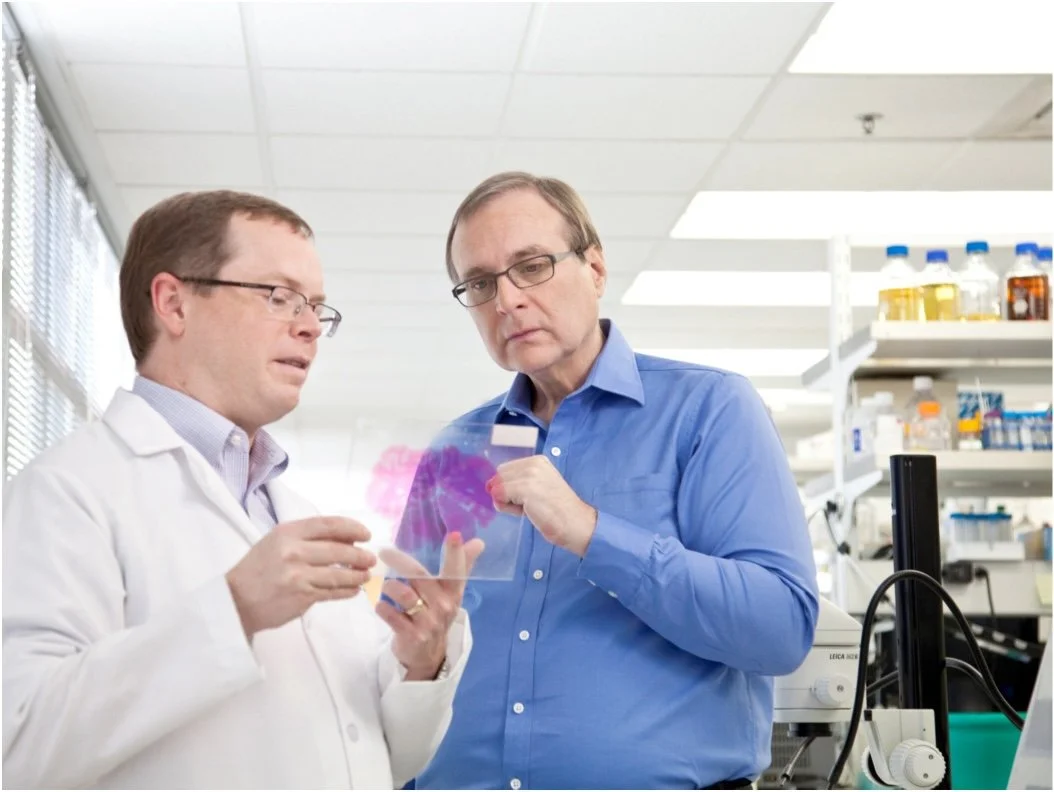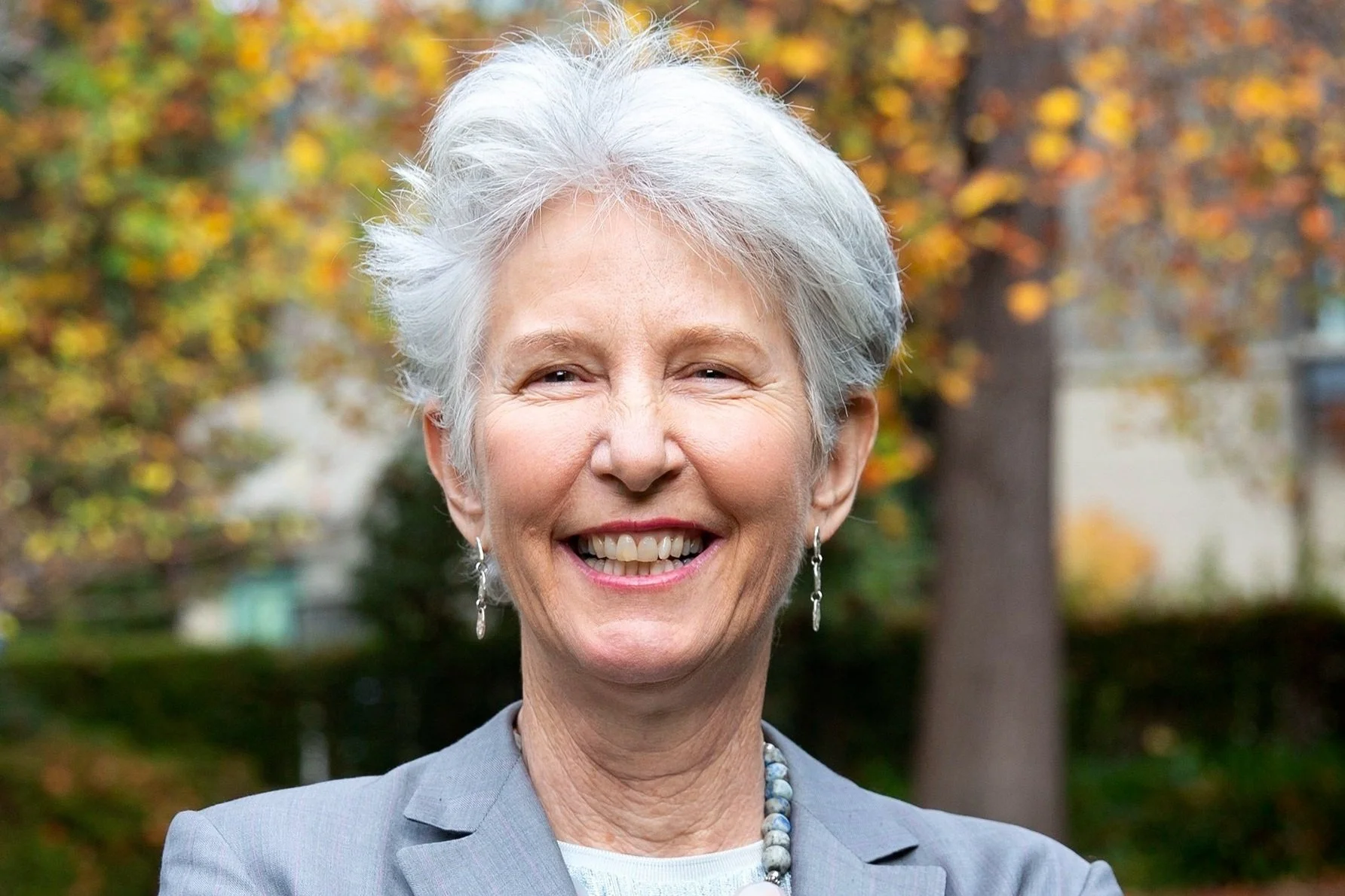
The Paul G. Allen Frontiers Group was created last year with $100 million in funding from the Microsoft billionaire to achieve “transformational advances” by investing in “scientists willing to pursue what some might consider out-of-the-box approaches at the very edges of knowledge,” as Allen said at the time.
We’ve previously reported on this mega-donor’s major giving for brain science, and more recently, his giving for issues like ocean health, the Ebola virus and its aftermath, and homelessness. In addition, we’ve reported on Allen’s expanding giving for edgy basic science research, through the Allen Distinguished Investigators program, an annual award competition that began in 2010.
The investigators program is now a part of the Frontiers Group, which takes a foundational approach to research, looking to support scientists whom Allen has identified as “passionate thought leaders, explorers and innovators who seek world-changing breakthroughs.”
One way the Frontiers Group pursues this mission is by backing Allen Discovery Centers, which are teams of scientists working on specific challenges at major research organizations and universities. The goal here is to “fund research efforts helmed by visionary leaders and coherent teams, pioneering expeditions that will pursue new discoveries, principles and insights.” The Frontiers Group is also looking to create a rich network of associations between these centers with the hope of producing “unexpected and radically productive new insights and ideas.” Each center gets an initial commitment of $10 million of support over four years, with the potential of more to come. In other words, this is patient money.
The Discovery Centers are a relatively new venture, and this week, the foundation announced support for two more centers—bringing the total to four. The topics scientists are exploring include cell biology and human brain evolution, and the institutions include Stanford, Tufts and Boston Children’s Hospital, and UW Medicine.
Meanwhile, in early June, the Frontiers Group named five new Distinguished Investigators who’ll receive a total of $7.5 million in funding. This latest batch of awards focuses heavily on potentially transformative research in the emerging fields of genomics and epigenetics. In past years, Allen awards looked at specific disease manifestations, such as Alzheimer’s, but more from the perspective of molecular cell biology. By contrast, in the last two funding cycles, researchers specializing in genomics, which focuses on the underlying genetic structure and the sequencing of genetic development as it manifests in disease sufferers, have come to the fore.
As we’ve reported, genomics is a hot topic in biomedical research these days, drawing the attention of a growing number of philanthropies. However, few funders have Allen’s deep pockets and can afford to let scientists take calculated risks in basic research that might not lead to disease cure in the short term, but could still prove useful in establishing the paths of research that could one day lead there.
Allen prefers to focus on up-and-coming scientists with demonstrated potential, and to let their brilliant minds wander, rather than confining them to an established program of advanced research that might foreclose unforeseen areas of exploration. Of the five scientists that receive a $1.5 million award spread over three years, few if any are tenured professors.
This year, the primary focus of Allen’s 2017 awards is epigenetics, in some respects a sub-field of genomics focused on how and why certain genes get “turned on and off”—that is, activated or rendered silent—during genetic development, which may be implicated in the development of major diseases, especially cancer. Three of the five projects awarded this year are intended to help scientists develop new laboratory technologies to visualize, track and study the spatial and regulatory dimensions of epigenetic functioning, which is more complex than previously thought.
Another award deals with dementia and aging—again with a strong emphasis on the underlying genetic structures and precursors—the “epigenetic clock”—that can explain why these illnesses develop in some people rather than others, and the timing and sequencing of the process. A final project zeroes in on the genetics of microbial infection, which might be useful in preventing the outbreak of another epidemic like Ebola.
“Each of these awards is given to researchers with the bold ideas and new perspectives we need to make the next big leap in bioscience,” says Tom Skalak, Ph.D., executive director of the Paul G. Allen Frontiers Group. “Epigenetics, aging and evolution are all fields with great impact on human health and wellbeing, but that currently face significant gaps in knowledge. With these awards, we hope to make strides toward the kind of breakthrough insights that can change the direction of an entire area of research.”
While getting to those breakthrough insights can take decades, Allen has already demonstrated that its basic research can prove transformational—and beneficial—even in the short term. At his Seattle-based Allen Institute for Brain Science, researchers working within the genomics paradigm have already reported some startling insights about the structure of the human brain. Looking toward the future, Allen says it wants its basic research programs to start working off of each other. It could be that genomic research will become more prominent in future Annual Investigator Award cycles. And Allen’s brain institute has already crossed over into disease research, focusing on brain injuries.
And don’t look now, but Allen is also looking into funding a major research program on climate change.
Spencer Reeder at the Paul Allen-owned Vulcan Inc., which is often a conduit for Allen’s giving, says this restless billionaire has been interested in climate change issues for years. “Paul is very committed to filling important gaps in science that are data-driven issues where philanthropists can make an investment and fill a gap that wouldn’t otherwise be addressed by the National Science Foundation or by NOAA or NASA, for example,” he told E&E News in March. “We’re constantly scanning the horizon for those opportunities, and within the climate portfolio, we’re looking at a number of things.”
Like variations in the genome, there’s clearly something special about the Allen DNA.












.jpg)

















